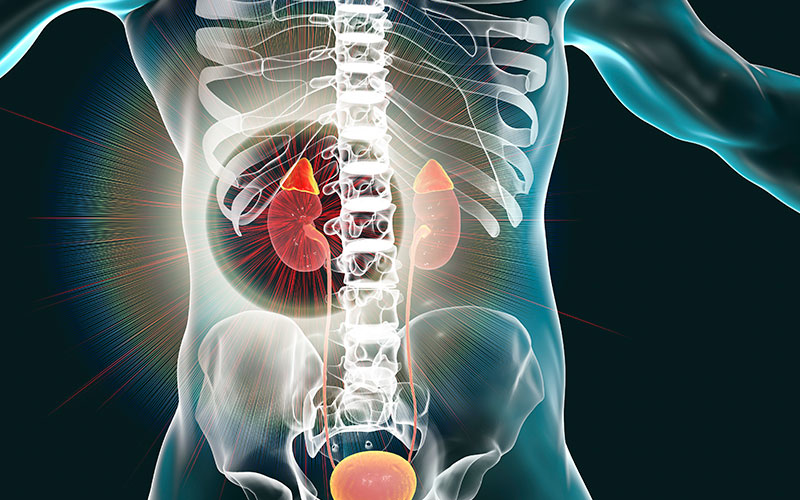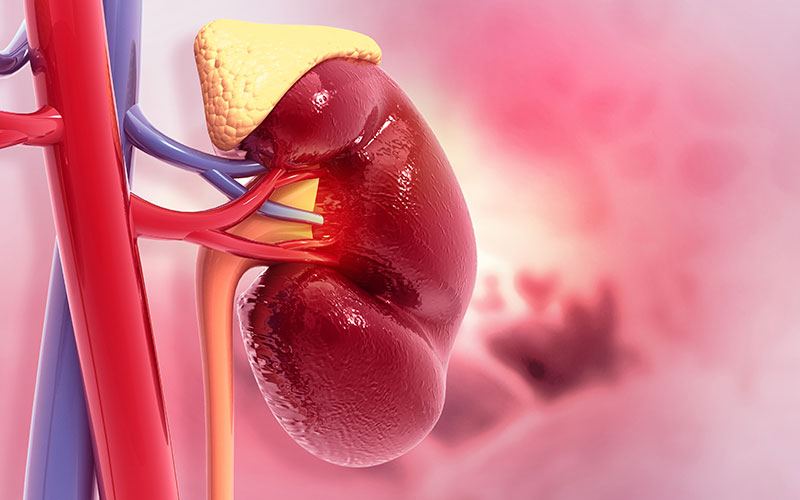- Home
- Growth Hormone
- Growth Hormone
- Growth Hormone Deficiency
- Growth Hormone Therapy
- Growth Hormone Injections
get startedThe Most Effective Hormone Replacement TherapiesWhat Are Adrenal Hormones and What do They Do?
The adrenal glands release hormones into the bloodstream. Like all hormones, the adrenal hormones are chemical messengers that affect many parts of the human body.
Adrenal glands produce hormones that help regulate your metabolism, immune system, blood pressure, response to stress, and other essential functions.
While your adrenal glands may be small in size, they produce adrenal hormones that play a very big role in how your body functions.The adrenal hormones regulate and maintain some very vital bodily functions such as your blood pressure, fat, and sugar metabolism, your sleep cycle, and your reaction to stress.
Because the various adrenal hormones play such an important role in regulating so many critical physiological processes, any disorders that affect your adrenal glands can have a broad impact on your health.
Anatomy of the Adrenal Glands
You have two adrenal glands, one on top of each of your two kidneys. Each adrenal gland is made up of two separate parts. The outer part is called the “adrenal cortex," and the inner region is known as the "adrenal medulla.”
Each part produces different adrenal hormones. The outer adrenal cortex is responsible for producing steroid hormones, including aldosterone and cortisol. The inner adrenal medulla produces several other hormones, including adrenaline and noradrenaline.
Where Are My Adrenal Glands?
Your adrenal glands are small, triangular-shaped glands located on top of both kidneys.
You have two adrenal glands attached to each of your kidneys.
Hormones of the Adrenal Glands
The role of the adrenal glands in your body is to release certain hormones directly into the bloodstream.
The adrenal glands produce three types of steroid hormones: glucocorticoids (cortisol), mineralocorticoids (aldosterone), and androgens (DHEA/DHEAS). The adrenals also produce epinephrine, more commonly known as adrenaline. For women, the adrenal glands are the major source of testosterone.
Cortisol – Cortisol is a glucocorticoid hormone that plays several important roles. It helps control how your body metabolizes fats, proteins, and carbohydrates. It is instrumental in your immune response in the suppression of inflammation. Cortisol also regulates blood pressure, increases blood sugar, has an impact on bone density, and helps to regular sleep. It is also fundamental to your body’s “fight or flight” response.
Aldosterone – Aldosterone is a mineralocorticoid. It is the most important hormone in regulating your blood pressure. It works with your kidneys to maintain the body’s salt and water levels which, in turn, regulates blood pressure.
DHEA and Androgenic Steroids – As opposed to the primary male hormone – testosterone – these hormones are “weak” male hormones. They are precursor hormones that are converted in the ovaries into female hormones (estrogens) and in the testes into male hormones (androgens). Estrogens and androgens are produced in much larger amounts by the ovaries and testes. However, unlike in males, the adrenal glands are a primary source of androgens for women.
Epinephrine – Epinephrine, more commonly known as "adrenaline," is the hormone that shoots into the bloodstream during times of stress or danger that initiates your body’s "fight or flight" response.
The adrenal hormones regulate and maintain some very vital bodily functions.
What Are Some Adrenal Gland Disorders?
Malfunctioning adrenal glands can lead to a number of adrenal disorders. Like all glandular-related hormonal issues, adrenal disorders can be caused by the glands producing too much or not enough adrenal hormones.
The most common disorders involving adrenal hormones are caused by the release of too much or too little cortisol or related glucocorticoid hormones. Adrenal insufficiency of this type can lead to a condition known as Addison’s disease. Addison’s disease due to insufficient cortisol production can cause a number of health problems including, low blood pressure, fatigue, weight loss, anorexia, nausea, vomiting, abdominal pain, salt craving, and low blood sugar.
The opposite condition, overactive adrenal glands producing too much glucocorticoid hormones, leads to a condition known as Cushing’s disease, which results in thinning and bruising of the skin, obesity, diabetes, psychiatric disturbances, high blood pressure, muscle weakness, osteoporosis, excessive facial hair and irregular periods in women. Patients with cortisol excess also have impaired wound healing and an increased susceptibility to infection.
On occasion, your adrenal glands may develop nodules that can be benign or malignant, which can potentially produce excessive amounts of certain hormones leading to various health issues.Though less common, there can also be problems related to imbalances of the other adrenal hormones.
Hyperaldosteronism results from the overproduction of aldosterone from one or both adrenal glands. It leads to fluctuations in blood pressure and can also cause headaches and visual problems.
Though quite rare, overproduction of the adrenal androgen hormones can occur, resulting in conditions related to too much testosterone, such as excessive hair growth and irregular periods in women.
Some adrenal tumors can cause overproduction of epinephrine. This can result in a condition known as paraganglioma, which can lead to fluctuation in blood pressure, headaches, excessive sweating, tremors, anxiety, and rapid heartbeat.
What Is Adrenal Fatigue?
“Adrenal fatigue” is a term applied to a collection of nonspecific symptoms, such as body aches, fatigue, nervousness, sleep disturbances, and digestive problems. The term "adrenal fatigue" was coined in 1998 by James Wilson, Ph.D., a naturopath, and expert in alternative medicine. He describes it as a “syndrome” that results “when the adrenal glands function below the necessary level."
The root cause of adrenal fatigue is stress. Our doctors understand that adrenal fatigue is a condition caused by overstimulation of the adrenal glands due to long-term stress. When you are overstressed, the adrenals release too much cortisol. Cortisol lowers your testosterone levels, which adds to many of the problems associated with adrenal fatigue.
How is Adrenal Fatigue Treated?
You can lower your risk of adrenal fatigue by reducing stress and improving your lifestyle. Make changes such as giving up smoking, alcohol, and drugs. Starting an exercise program, eating healthy foods, and following a daily routine for sleeping and waking will almost always make you feel better and could help you avoid the problems of adrenal fatigue.
There is no specific "treatment" for adrenal fatigue. Treatments will be designed to target the root causes. Lifestyle changes and supplementation may be recommended to reduce stress and cortisol release. Hormone replacement may be used to bring hormones back into harmony that were thrown into imbalance by the increased production of cortisol due to adrenal fatigue.
Any disorders that affect your adrenal glands can have a broad impact on your health.
Now that you know a bit more about adrenal hormones, why not contact us today and find out more about maintaining good health by keeping all of your critical hormones in balance and at their optimal levels.
- Growth Hormone Therapy



























